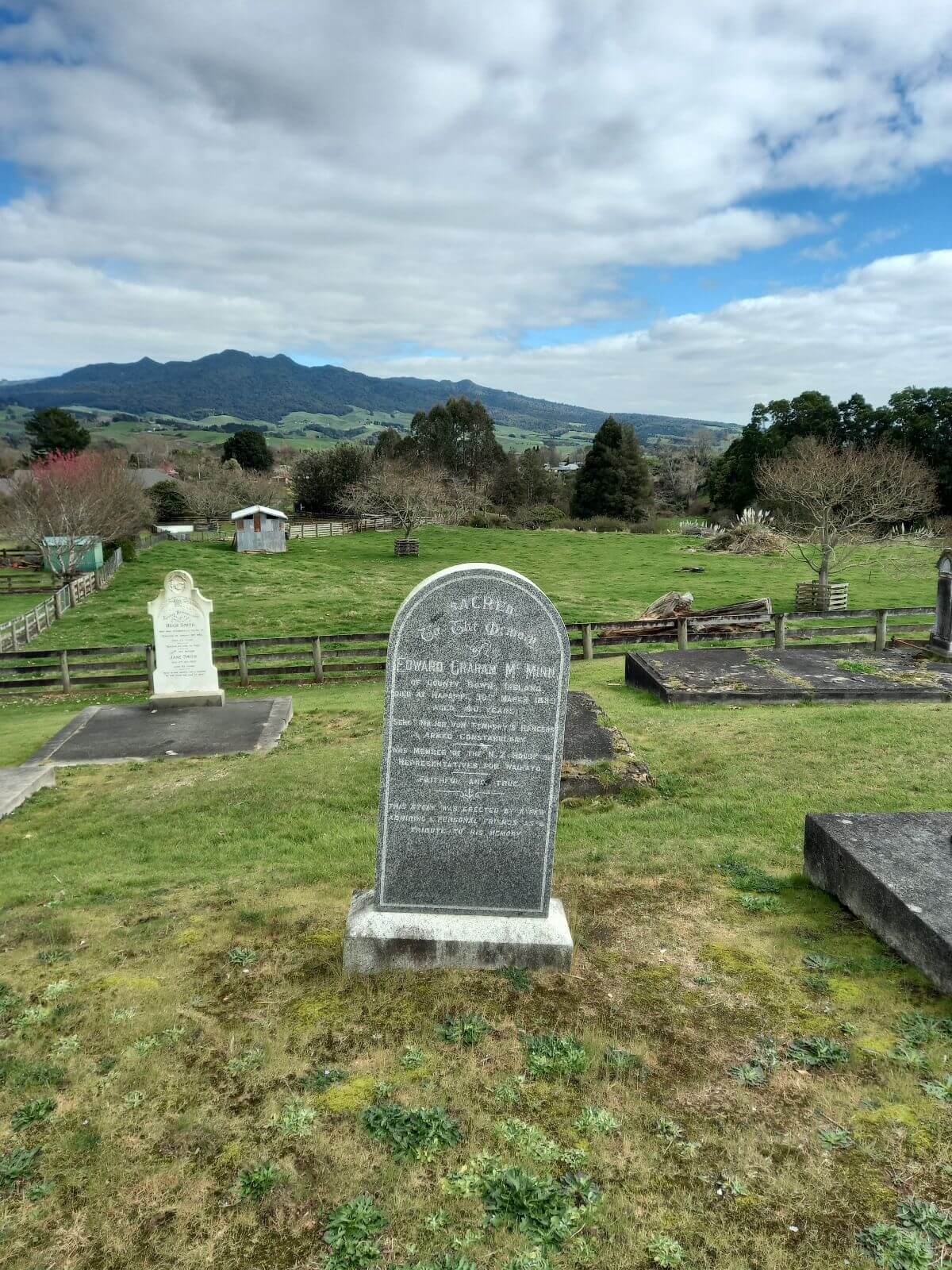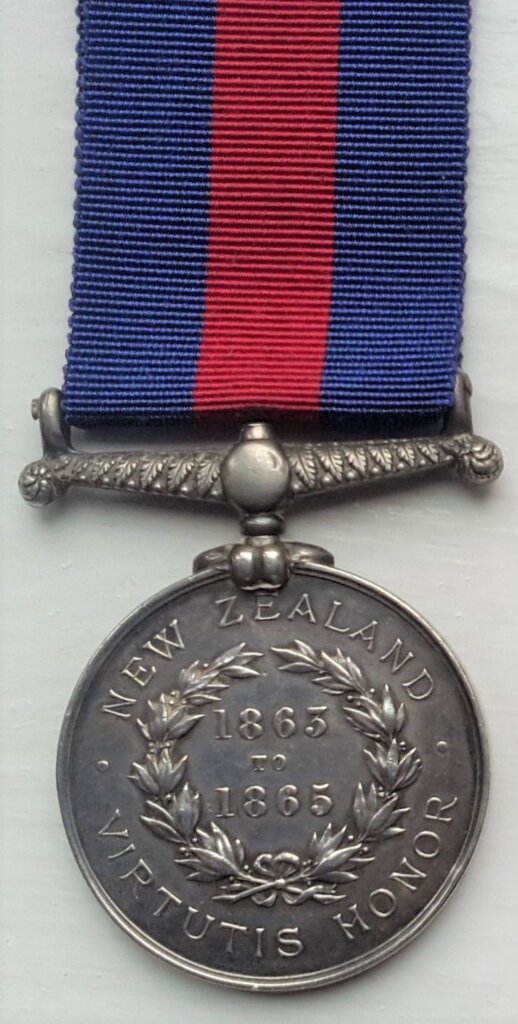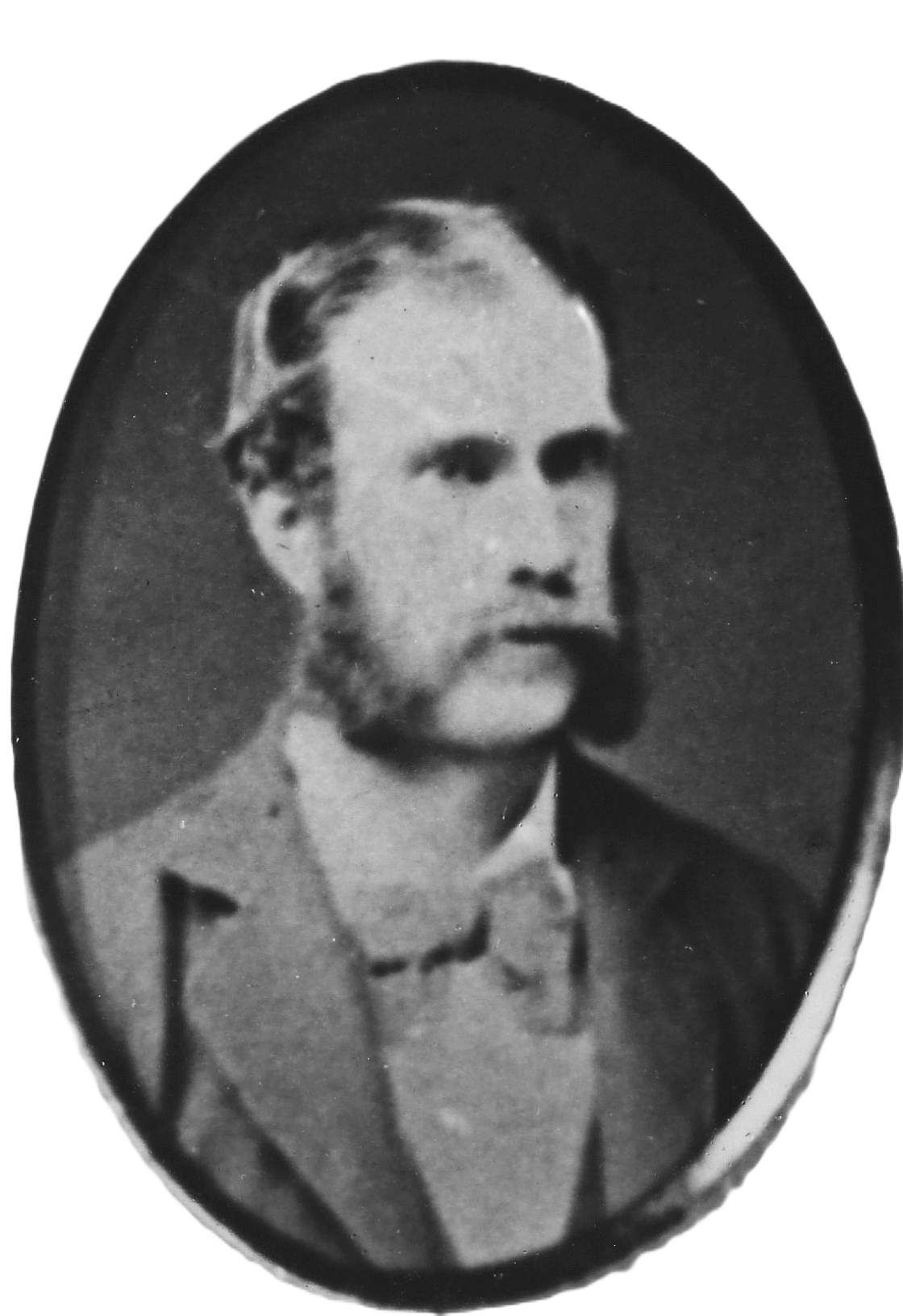Edward McMinn felt so sleepy he was afraid he would fall off his dray on the way home to Harapepe.

Edward Graham McMinn’s gravestone at Pirongia Cemetery.
The 40 year old bachelor had been up late the past two or three nights while away on business. His last task was taking a plough to be repaired to James Sinden, blacksmith, at Pirongia. It was March 30, 1883 and while Edward was having tea with James early in the evening he began complaining of feeling very low and depressed.
James advised him if he felt so bad not to go home but wait for the morning and sleep in the township. Edward agreed and the men took the plough off the dray again. But when the moon came up Edward changed his mind and decided to go home. “It will only give you trouble to help me catch my horse in the morning,” Edward said. He would walk home, that would keep him awake.
Once home, Albert Cogswell, Edward’s servant, served his supper. Edward then read the newspaper. Before retiring for the night about 10pm Edward remarked that he felt very tired and hoped to get a good night’s rest. They went to bed at the same time, Albert occupying the adjoining room. He woke briefly at 1am and heard Edward snoring as usual. By 6am Albert was up and milking the cows. At 7am he went to call Edward to get up. Receiving no response he took hold of Edward’s hand and found that he was dead.
Albert ran at once for the neighbours, about half a mile distant, but there was nothing they could do. At the inquest Dr Blunden stated the sudden death was caused by some internal lesion of the brain. The jury returned a verdict of death from natural causes.
Few men in the Waikato were better known or more universally respected than Edward, and news of his death was met with genuine regret. Edward, an Irishman, had arrived in New Zealand on the Mermaid in 1859 when he was just 16, accompanying the family of Dr Aicken. His mother had died the year before and his father would die a year later. His siblings ended up scattered across the world. At the age of 20 Edward joined Gustavus Von Tempsky’s company of Forest Rangers, a small unit of handpicked men. He was quickly promoted to Corporal then Staff Sergeant, taking part in battles on both the east and west coasts.
Under New Zealand’s military settlement policy the Rangers were entitled to Land Grants and in 1866 Edward took up one at Harapepe. In 1867 the Forest Rangers were disbanded and the Armed Constabulary formed. Edward joined, serving under Von Tempsky again. He was present at the battle at Te Ngutu O te Manu when Von Tempsky was killed.

The New Zealand Medal denied to McMinn
Members of the Armed Constabulary were vocal about decisions made during the battle and Edward wrote a letter on behalf of his men. He was considered to have participated in a mutiny. No 5 Division was disbanded, its members dishonourably discharged and abandoned in Whanganui.
Edward, along with others, was denied the New Zealand War Medal, despite qualifying for it during his service in the Forest Rangers.
He returned to his Harapepe farm and became prominent in the settlement as chairman of the Pirongia Highway Board and a Raglan County Councillor. A bid for parliament was unsuccessful but he became the MP for Waipa in 1878, before losing his seat in the 1879 general election. He had been an ardent worker for the welfare the community, and the road over the Hakarimata range owed its existence to his energy.
His funeral was attended by friends from all parts of the district and residents from Harapepe and Alexandra were present almost without exception. Over 200 were on horseback, in carriages, and on foot, showing the great respect in which Edward was held. His headstone at Pirongia cemetery reads “Faithful and True. This stone was erected by a few admiring and personal friends as a tribute to his memory.”

Edward McMinn









